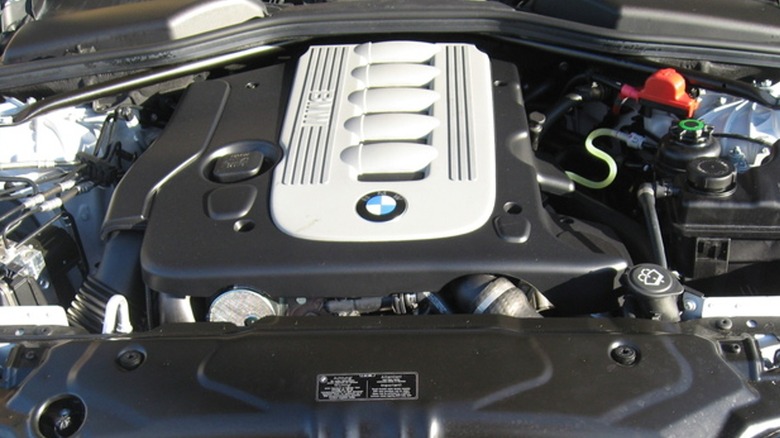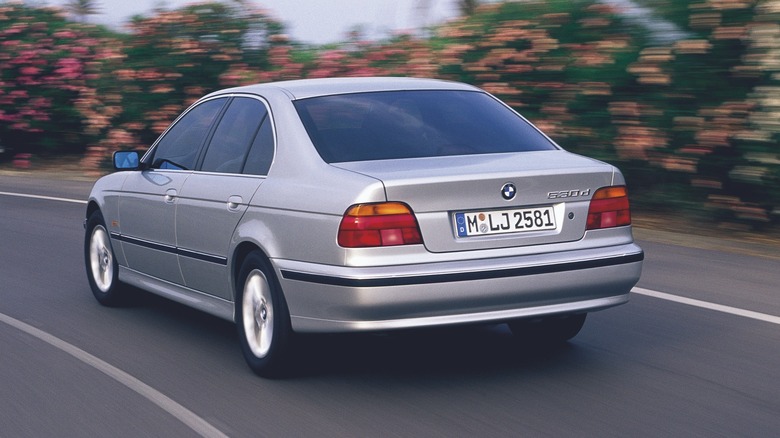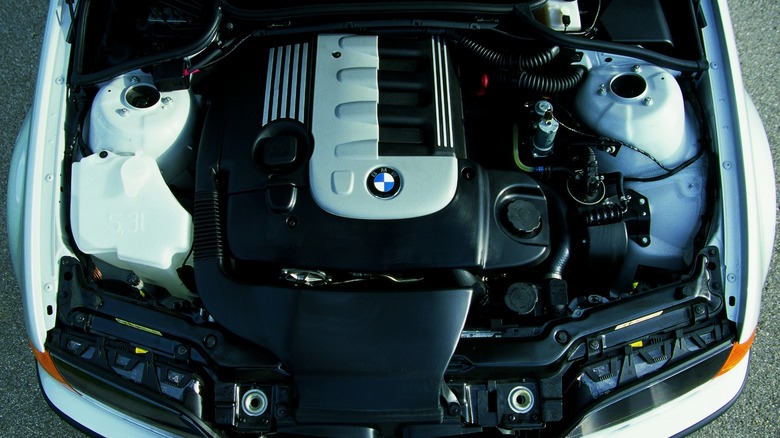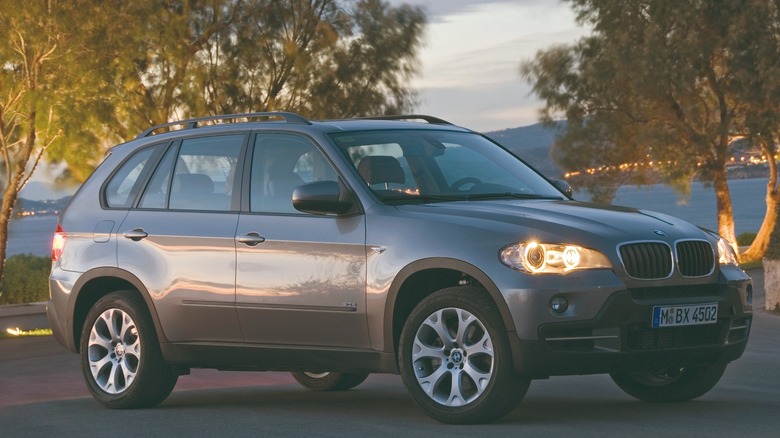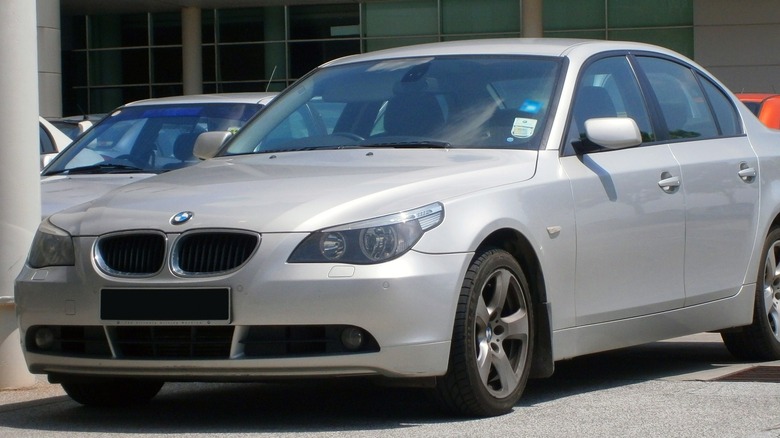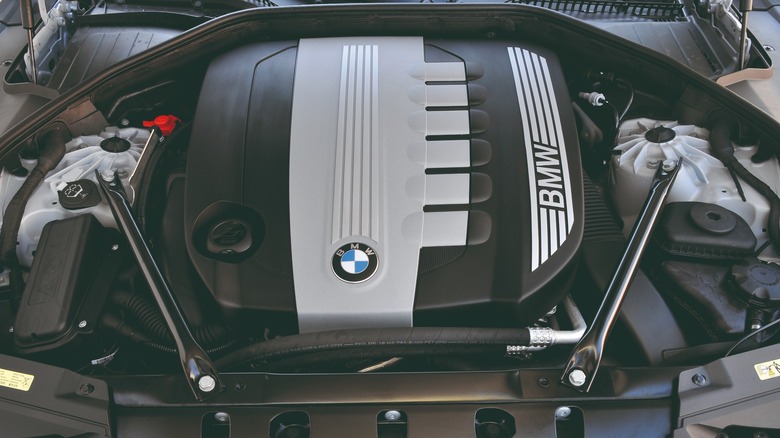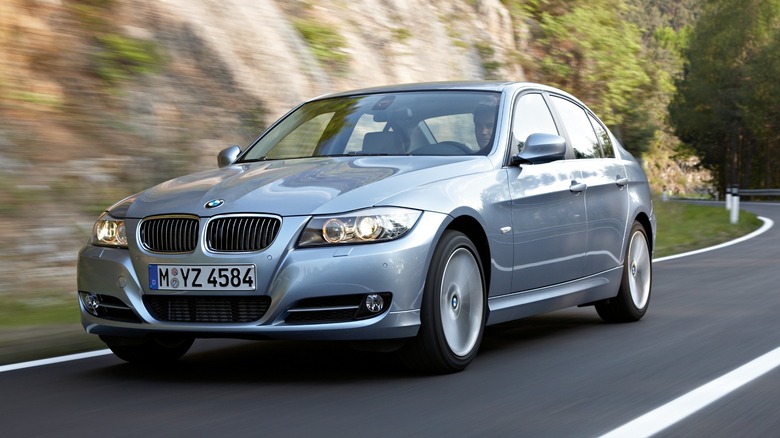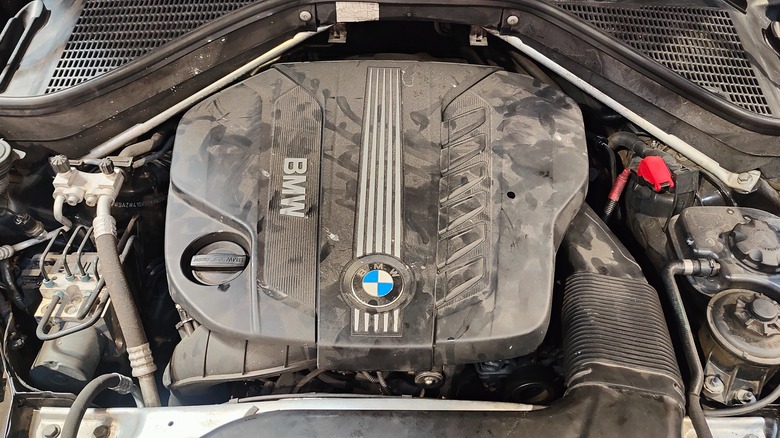The Best & Worst Years For BMW's M57 Diesel Engine: Which Should You Avoid?
It can be tempting to seek out horror stories for historic engines. Whether you're searching for a used car or looking to stick with one particular brand, knowing the downsides of problematic powertrains can provide you with knowledge of a worst-case scenario for your upcoming purchase. The M57 engine from BMW is one example that some might be tempted to question, with reports of its reliability perhaps seeming too good to be true. However, there's a reason why it stands as one of the most reliable diesel engines ever built.
Introduced in the late 1990s and lasting until the early 2010s, the BMW M57 is held in high regard. On top of having fantastic performance, it suffers from nearly no technical issues whatsoever, especially in its earlier years. The greatest problems you might face with an M57 of your own aren't any different from those you'll face from any other diesel engine, which can be easily avoided as long as you follow routine maintenance. While there are a few troublesome BMW models with this engine, very few years will provide you with any reason to doubt the M57's reliability.
[Featured image by Dandle via Wikimedia Commons | Cropped and Scaled | CC BY-SA 3.0
Best Years: 1998-2000
The M57's introduction came just before the turn of the new millennium, but its availability in America was practically nonexistent until much later. As a result, it started as only being present in iconic BMW cars that didn't even make it to the United States, such as the E46 330d. It also made its way into the E39 530d and E38 730d, each with variations in horsepower and torque. These variations are present for most years where the M57 found itself in multiple different models, causing some very different experiences depending on which car you went for.
Despite these differences, even the earliest M57s were met with praise both as a brand-new engine and as a classic choice for modern buyers. You'll be hard-pressed to find negative reviews covering these models from before the 2000s — especially regarding the engine itself. Even with these older vehicles being especially outdated, they've managed to last as high-quality picks for both average consumers and die-hard enthusiasts. The earliest iterations of the M57 laid the groundwork for one of the best diesel engines you'll find today, and later years managed to keep that groundwork from being spoiled.
Best Years: 2001-2003
As the early 2000s began in earnest, the M57 was given greater horsepower and a wider range of models to be present in. The X5 E53 was one of these models, with this engine offered as the car's only diesel option. It's considered by many to be the best engine you could get for that model. The X5 E53 also happened to be one of the most successful BMW models of all time, and while much of that success came from the SUV's petrol V8s, the diesel option certainly didn't hurt its reception. If anything, some buyers simply regretted not getting their hands on the diesel-powered E53 sooner.
The engine also continued to be used in newer models of vehicles in which it was already present, such as the E46. The aforementioned increase in strength also allowed the M57 to reach above 200 horsepower, letting its reliability be complimented even further by its newfound performance. As a result, the M57 won multiple awards throughout these years, dominating the rankings when compared to other engines with similar capacities. Regardless of diesel or petrol, this engine was quickly making strides for itself and BMW, long before it even ended up halfway into its lifespan.
Best Years: 2004-2006
The M57 received another revision in the mid-2000s, though the changes here went further than simply increasing some numbers. Aspects of the engine received entirely new designs, using aluminum parts in place of cast iron and combustion chambers with lower compression. These additional changes allowed the M57 to make incredible strides, with new E60 535d cars using it to reach 272 horsepower. This allowed it to stand out even as other powertrains from BMW gained more presence, with many similar BMW models being powered by the N52 engine. These engines provided a bit of competition with the M57, but none could quite manage to fill its niche.
By this point, while options for various models have expanded, the M57 was still the go-to option for diesel-powered BMWs with as much power as possible. Only a select few models offered a more powerful diesel engine with the M67, including the E65 740d, but this larger alternative wasn't nearly able to match its counterpart's availability. The M57 excelled here in these later years, being the only diesel engine in the company's lineup that was able to keep up with overall demand. This arguably isn't even when the engine hit its peak, as it still had quite a few more good years left before finally hitting a decline.
Best Years: 2007-2009
The few years before 2010 were quite possibly the best years for the M57. 2009 was around the time when the M57 was first brought to the States, allowing it to finally gain some more presence in BMW models made in the USA. Its use in other models continued to grow as well, being made available in cars like the X6 xDrive35d. Nothing had changed about the engine's reliability, either, leaving very little question as to whether the engine was worth getting your hands on.
Despite everything good that happened to the M57 during this time, this era also introduced what would eventually kill the engine off. A replacement engine known as the N57 began to find a foothold in models that already had the M57, and while some BMW fans argue over which is better, its existence would eventually lead to the older option being phased out entirely. The pre-2010 model years are still perfectly fine choices to focus on getting an M57, as the N57 would take some more time to share its wide availability. However, this is the last set of truly great years for the M57.
[Featured image by Aero777 via Wikimedia Commons | Cropped and Scaled | CC BY-SA 2.5 MY]
Warning Years: 2002-2008
While the M57 thrived throughout the early 2000s, you should still be wary of this set of years if you look for a used car from that time. This is primarily thanks to one specific model that happens to have the engine under its hood. The BMW E65 is considered by many automobile enthusiasts to be absolutely infamous, suffering from a vast number of reliability issues due to its high-tech nature at the time. This reliability nightmare was something to worry about even with the M57 in the 730d variant, finding more issues relating to cam chains and failing turbos. The problems were so vast that even one of the best diesel engines ever made by European automakers couldn't save the model.
The E65 730d lasted from 2002 to 2008, causing the M57 to last for nearly the entirety of the car's lifetime. The fact that it lasted so long even with the M57 helping it out is perhaps the most impressive thing about the sedan. Luckily, while the engine itself faced issues inside the E65, it never found very many complaints from other models released during this time period. As long as you steer clear from this specific model, you shouldn't have much trouble with any other M57 from 2002 or later.
Worst Years: 2010
Like with 2002 through 2008, the reason to be wary of 2010 M57s is due to one very specific model in BMW's lineup. Unlike those years, however, there's a much greater reason to avoid the engine entirely. The problematic model in question is the E90, which was one of the many BMW models powered by the N54 engine, as well as the N52 and N57. While this gave prospective buyers a lot of options, the crippling weakness this model had came in the form of a warranty extension – one that only covered the car's M57-powered 335d variant.
The recall in question concerned the engine's throttle valve, which suffered from defects relating to poor-quality materials and insufficient workmanship. While it's not exactly a recall of the entire engine, it was the first case of the M57 having a notable design flaw that needed to be pointed out by officials. It's another case of only a select few models being affected, so it's not like every M57 from 2010 will need you to be aware of this issue.
Worst Years: 2011-2013
The biggest reason why the final years of the M57 are the ones to avoid is simply due to the N57's existence. At this point, it had gained a foothold in just about every model the M57 was present in, often providing competitive or even better horsepower numbers than its rival. The N57 is also seen as a very reliable engine in its own right, even with some BMW enthusiasts finding its timing chains to be questionable at times. It's not like the M57 had suddenly gone bad, but the N57 was quickly outdoing it, and further issues only helped to dissuade modern buyers from giving it a chance anyway.
In 2019, the X5 xDrive35d — a BMW model with the M57 under its hood — faced a recall covering model years from 2009 all the way to 2013. This recall covered the alternator bolt for the idler pulley, marking one of the only other times the M57 had a glaring design flaw. Though it's only for a specific model once again, this recall was made long after the engine stopped being manufactured, leaving the possibility of further undiscovered issues in these later versions. Combined with the N57's wider use during this time, there isn't much reason to look for an M57 throughout the 2010s.
[Featured image by Iamjosemon via Wikimedia Commons | Cropped and Scaled | CC BY 4.0]
